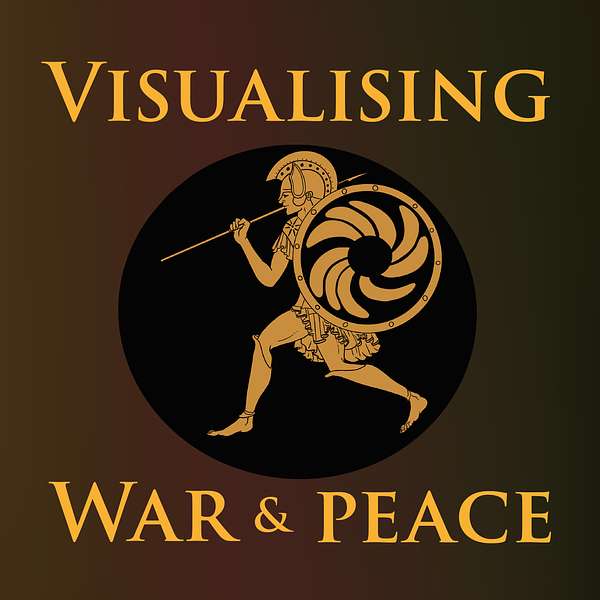
Visualising War and Peace
How do war stories work? And what do they do to us? Join University of St Andrews historian Alice König and colleagues as they explore how war and peace get presented in art, text, film and music. With the help of expert guests, they unpick conflict stories from all sorts of different periods and places. And they ask how the tales we tell and the pictures we paint of peace and war influence us as individuals and shape the societies we live in.
Visualising War and Peace
Photographing forced displacement with Dijana Muminovic
Use Left/Right to seek, Home/End to jump to start or end. Hold shift to jump forward or backward.
This episode is part of a mini series exploring forced displacement as one of the many legacies of conflict. Alice interviews Dijana Muminovic, a Bosnian-American documentary photographer who focuses particularly on documenting war's aftermath. Dijana has personal experience of forced migration herself, having moved to the US from Bosnia as a refugee from the Bosnian War. She now divides her time between working for Medica Zenica, an NGO that supports women and girls who have survived war rape, and her photography work, with a particular interest in telling refugee stories.
Dijana starts the episode by recalling her memories of the war in Bosnia - the air raids, the lack of food, water and electricity, and the constant fear, which turned her into a peace campaigner as a child. She also recalls the moment when she first learnt the meaning of the word 'refugee', as groups of Bosnian Muslims began arriving in her town, fleeing the genocide in other parts of the country. In a few years, she would become a refugee herself, and she describes what it was like to leave behind her beloved grandmother and arrive in a country that looked so strange and functioned so differently from everything she was used to.
As Dijana reflects on the challenges she faced - from dirty accommodation to the difficulties of learning English - she helps us grasp the work involved in moving from a state of homelessness to belonging. She remembers how often she felt 'less' than everyone around her, as she struggled to fit in and keep up; and how being introduced as 'a refugee' or as someone who didn't 'speak good English' would reinforce the sense that she was different and had not yet 'made it'. For a long time, she hated being called a refugee; but more recently, she has come to embrace that part of her identity with pride.
We discuss a range of Dijana's photography projects, which are all connected with war and displacement. She talks us through some powerful images she has taken of the ongoing work to locate and identity victims of the Bosnian genocide; and we discuss several series of photographs that look at refugees in the US, on the Croatian-Hungarian border, and in Bosnia itself. Dijana reflects on the ethics of photographing displaced people and forced migration, and the challenges of balancing the duty to document with a more humanitarian role, to provide a welcome and offer support. Her approach revolves around taking time, establishing relationships and building trust, to avoid exploitation and to enable her to tell people's stories with integrity. Her primary audience, she explains, is people who cannot see past the label 'refugee' and who have been influenced by anti-immigration coverage in the press and in politics. As Dijana's work underlines, photography can play a powerful role in building empathy and deepening understanding of the causes and consequences of forced displacement.
We hope you enjoy the episode. You can read more about Dijana's work and see some of her photographs on her website; and we have also published blogs featuring some of her work here and here. You can find out more about our wider work on Visualising Forced Migration via our project website.
Our theme music was composed by Jonathan Young.
The show was mixed by Zofia Guertin.